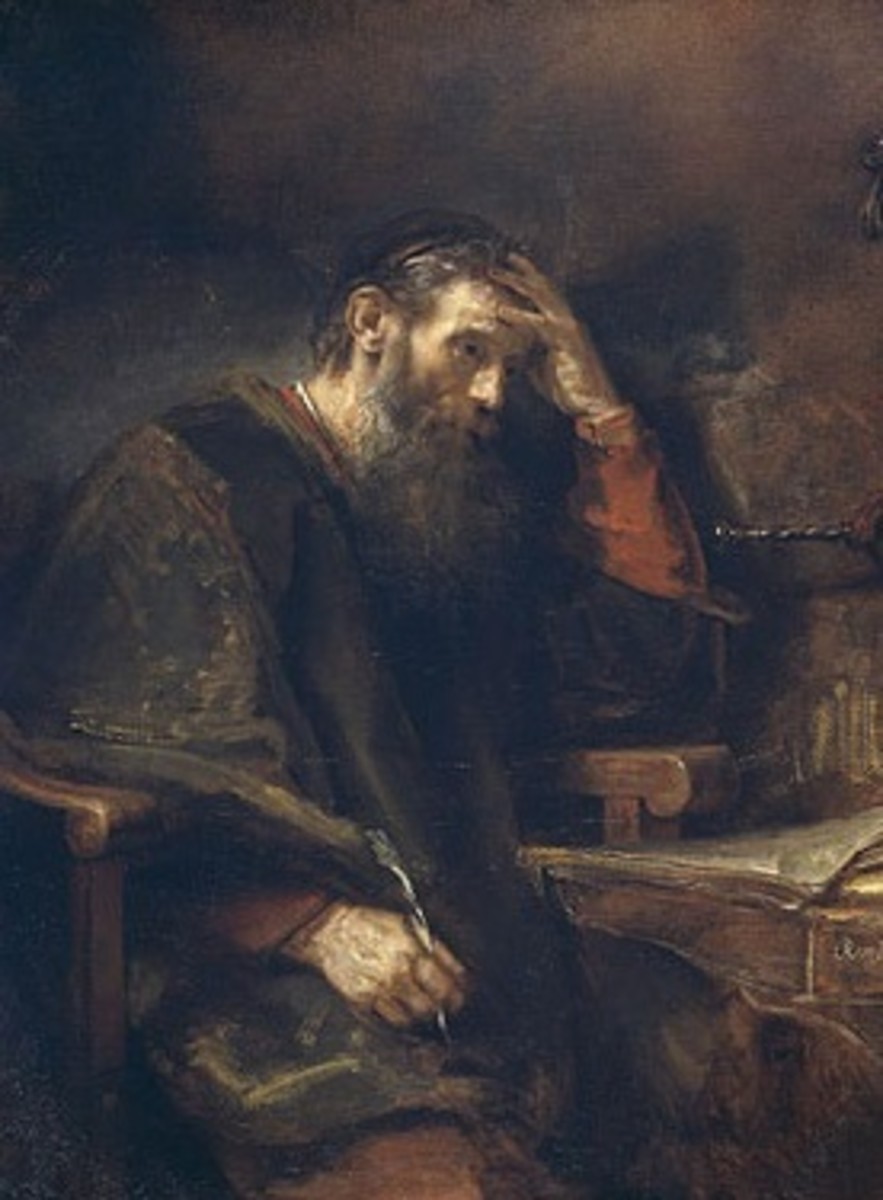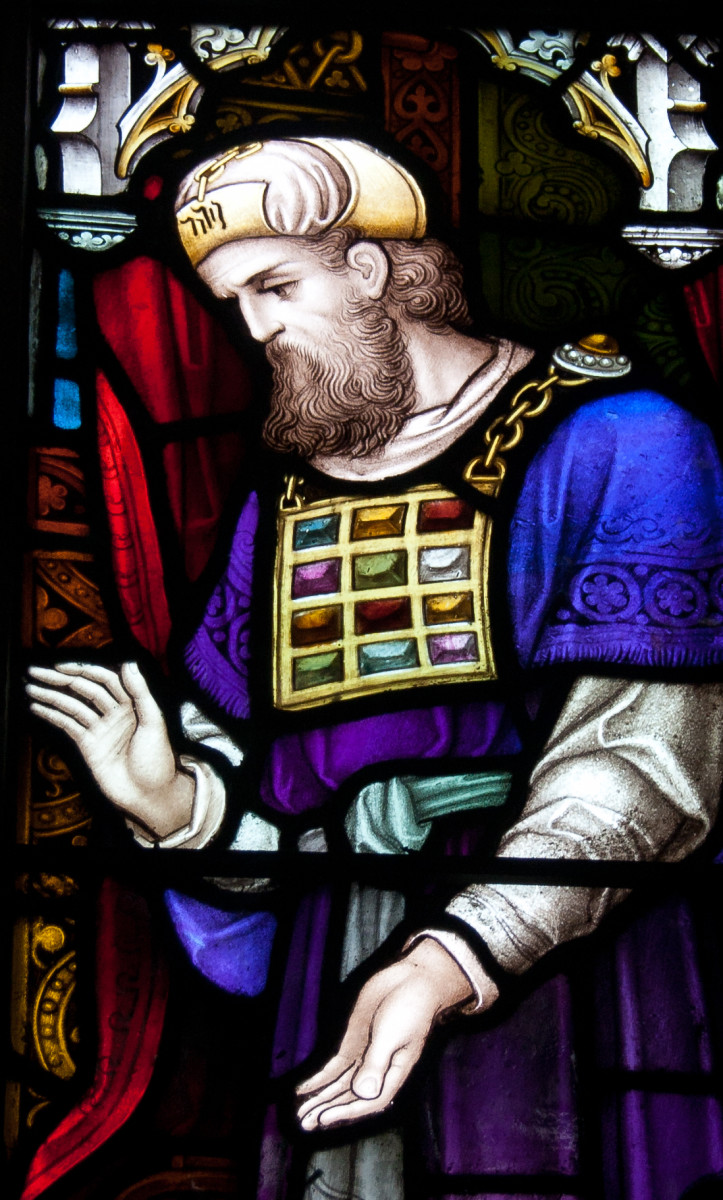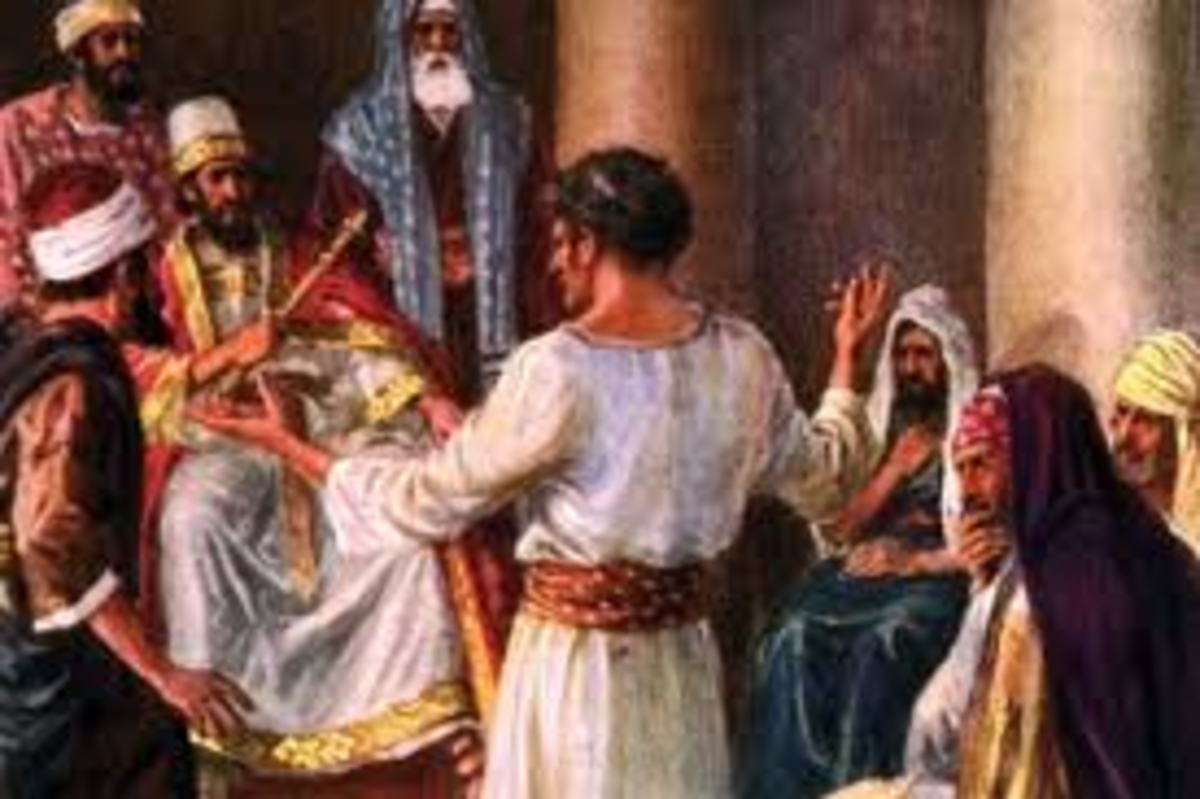None so Zealous as a Convert
The First Martyr
Stephen was a man of God, full of wisdom, grace, and the Holy Spirit. For boldly preaching the Word of God, he was eventually arrested and tried before the Sanhedrin. In front of the most prominent Jews in Jerusalem, he spoke of God’s faithfulness to their people, which likely pleased the distinguished audience. But he ended the speech by accusing their forefathers of killing the prophets, and the council of murdering Jesus. Naturally, this enraged the assembly, but Stephen calmly looked up to the sky. “’Look’ he said ‘I see heaven open and the Son of Man sitting at the right hand of God.’” At this, the furious Jews rushed at him, drug him through the city and stoned him. In the midst of all this, Stephen prayed, “Lord Jesus receive my spirit. Lord do not hold this sin against them.” (Acts 7:60) These were the last words he ever spoke. The year was 36 AD, and Stephen had become the first Christian martyr.
Among the religious leaders stood a young man named Saul. He gathered the coats of the men as they stoned Stephen, and the Book of Acts tells us that he approved of Stephen’s assassination. Stephen was a Hellenist, Jewish Christians who spoke Greek as their first language and maintained many Greek customs. He ministered primarily to foreign Jews living in Jerusalem. After his death, the church began to face persecution at the hands of the Jews. Stephen was buried and mourned, but the church didn’t have much time to grieve for their friend and brother. Saul sought to destroy the entire church. He went from house to house and imprisoned any man and woman he found guilty of the crime of practicing Christianity. As a result the church scattered throughout Samaria and Judea, where they continued to preach the Word of God to all races and ethnicities. This had the unintended, but very beneficial, consequence of spreading Christianity.
The Conversion of Paul

While they were stoning him, Stephen prayed, "Lord Jesus, receive my spirit." Then he fell on his knees and cried out "Lord, do not hold this sin against them." When he had said this, he fell asleep.
— Acts 7:59The Damascus Road
Saul continued his persecution against the Christians. He was a very devoted Jew and was highly offended by the new sect, he took it upon himself to eradicate Christ’s followers. While Philip was spreading God’s Word to foreigners, and Peter was chastising those who would use the gospel for greed, Saul contacted the High Priest for information on any who dared call themselves disciples of Christ. He set off for Damascus to imprison Christians. As he neared the city a light from heaven flashed all around him, blinding him with its luminescence. He fell to the ground and heard a voice ask “Saul, Saul, why do you persecute me?” Saul asked who the voice was and He replied “I am Jesus, whom you are persecuting. Now get up and go into the city and you will be told what you must do.” Saul got up from the ground, still blinded by the light. His companions heard the voice, but didn’t see anyone. They took him by the hand and led him to Damascus.
Meanwhile, in Damascus, there lived a disciple named Ananias. God spoke to him in a vision telling him that a man named Saul was on his way, and instructing Ananias to restore his sight. Now Ananias had heard of Saul. Saul was the enemy who was actively seeking out disciples to persecute. He objected to his assignment, citing the risks of reaching out to such a man. But God told him that Saul was the instrument through whom He would be working. Who can argue with God? Ananias did as he was instructed and set out for the house where God told him Saul would be. Ananias explained who he was and that he had been sent from God. As Ananias spoke, he laid his hands on Saul and a substance like scales fell from Saul’s eyes and he could see again. He was baptized immediately after and then, for the first time since he lost his sight, Saul ate and drank again.
Galatians 1:17 explains that after his conversion, Saul went to Arabia to meditate on his new revelations. After he was sufficiently filled with truth and grace, he returned to Damascus where he preached the gospel for three years before going to Jerusalem to meet with Peter. At first, the Christians were skeptical of Saul’s conversion. He had spent time, money, and energy to persecute them, why trust him? But a disciple named Barnabas vouched for Saul, and when they saw how fearlessly he spoke of God, they learned to trust him. Eventually, Saul became known as Paul, and risked life and limb to spread the gospel of Christ. The disciples had gained a true brother in Christ.
"Lord," Ananias answered, "I have heard many reports about this man and all the harm he has done to your saints in Jerusalem. And he has come here with the authority from the chief priests to arrest all who call on your name."
— Acts 9:13,14Paul the Leader
God told Ananias that Paul was to become the instrument through whom God would work. That was an understatement. There is none so zealous as a convert and Paul worked diligently for the remainder of his life to right the wrongs of his youth. As earnestly as Paul had worked against the Christians, he now put all his energy into working for them. The strict legalism he so strongly adhered to in his youth, he now eschewed in favor of God’s grace and forgiveness. When he was a Pharisee, Paul knew the law better than most, and he knew first hand that one can’t buy grace through legalism. If so, he would have done it prior to his journey to Damascus. Indeed, Paul, more than any other disciple, strove hardest to abolish the Mosaic laws in favor of the doctrine of “Grace Alone.” It was through his efforts that Christianity separated from Judaism. He knew that Christ provided His children with liberation from the laws that the Pharisees tried so hard to enforce. In John 8, Jesus had referred to Himself as the truth that sets humanity free. Paul experienced that truth for himself and made it his life’s mission to share that freedom with the whole world.
Paul spent the remainder of his life traveling from city to city, boldly proclaiming the Word of God. For his troubles he was imprisoned, flogged, and was given “forty lashes minus one,” the maximum sentence under law. At times he was beaten with rods, an illegal punishment for Roman citizens such as himself. He faced a constant unknown affliction, the “thorn in his flesh.” He so incensed the people that his ministry was often followed by taunts, insults, and even riots. Yet, for Christ’s sake, he proudly bore it all. Stating in 2 Corinthians 12 that he delighted in weakness, insults, hardship, persecutions and difficulties because, in Christ, he found strength in his weakness. Because of his past as a teacher of the law and persecutor of the early church, he experienced the truth more keenly than others. Half the books in the New Testament are written by Paul, and it was he who laid the groundwork for modern Christian theology. God used Paul to spread the gospel throughout the ancient Middle East and it is no big stretch to say that were it not for him, modern Christianity would be no more than a minor sect of Judaism. Through Paul, we can plainly see the complete transformation that faith in Jesus can bring about. Paul stood by and gave his approval to the first Christian martyr. In the end, he too was martyred for his boldness. Ultimately, it would be Paul who would suffer for the glory of God, and join Stephen at rest, in the kingdom of heaven.
Therefore, since we have been justified through faith, we have peace with God through our Lord Jesus Christ, through whom we have gained access by faith into this grace in which we now stand.
— Romans 5:1,2© 2017 Anna Watson






